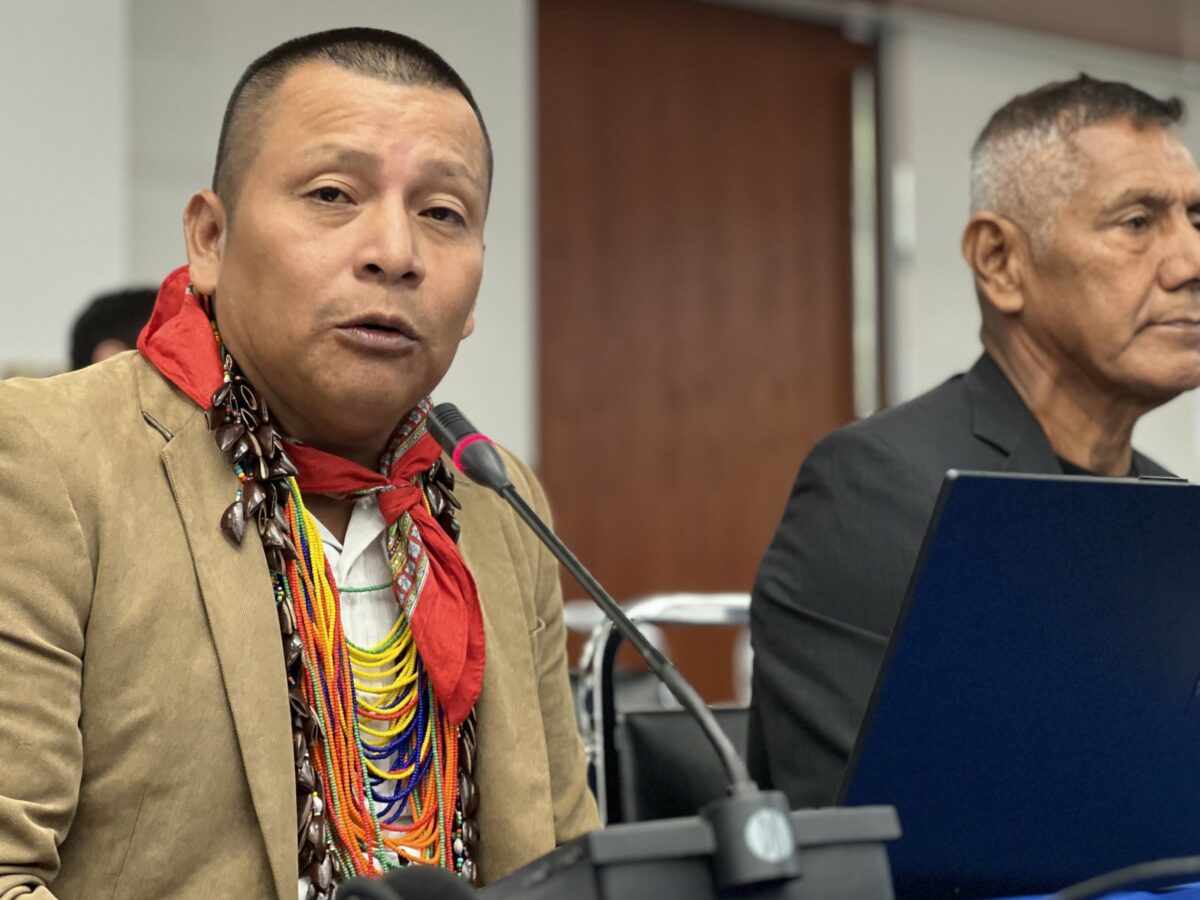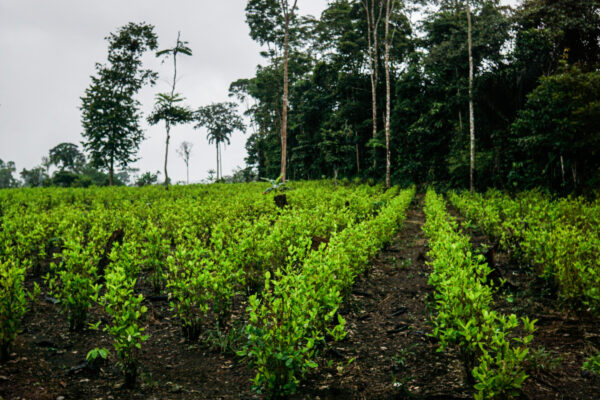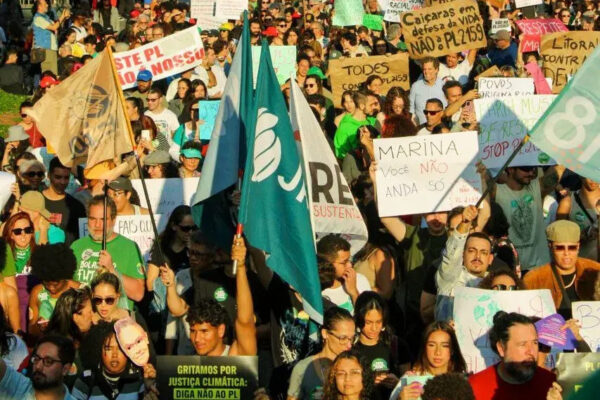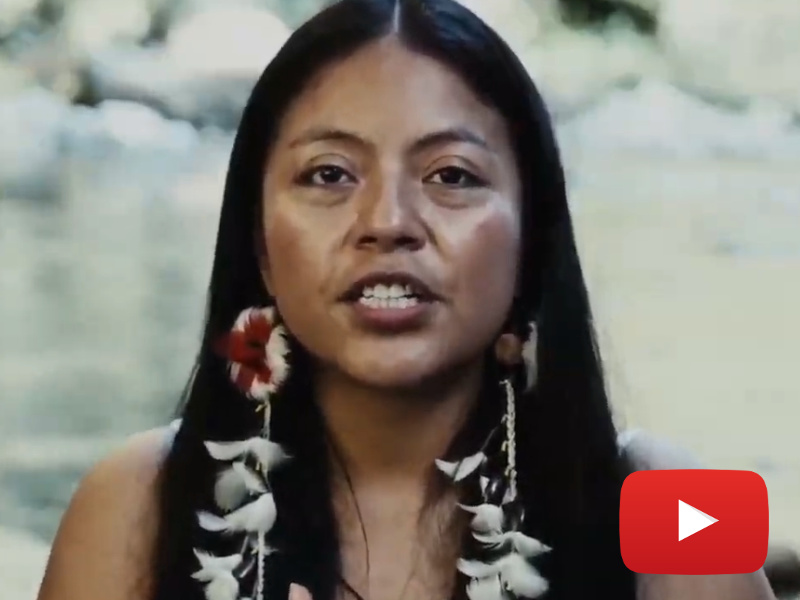Washington, D.C. – The Colombian government must address the current situation of violence and humanitarian emergency affecting the inhabitants of the Putumayo department and provide justice for the extrajudicial executions known as “false positives” committed in the rural community of El Remanso, community representatives from the Putumayo region and, accompanying civil society groups said today at a hearing before the Inter-American Commission on Human Rights (IACHR).
During the hearing, Sandro Piaguaje, a member of the Siona People, delegate of the Coordination for Human Rights and Peace of the Organization of Indigenous Peoples of the Colombian Amazon (OPIAC), highlighted the close relationship between violence in Putumayo and the presence of multinational companies.
“For many years, we have suffered the impacts of multinational oil companies, mining concessions, illegal gold extraction, and the advancement of illicit crop cultivation. This, combined with the dynamics of the armed conflict, has turned Putumayo into one of the most devastated departments in Colombia,” stated the OPIAC delegate, emphasizing how the actions of the Colombian Armed Forces, post Plan Colombia, have prioritized the protection of infrastructures and the interests of oil and mining companies, to the detriment of the rights of Indigenous peoples and campesino communities.
Meanwhile, Yarley Ramirez, current governor of the Bajo Remanso Council, who assumed the position after the assassination of Governor Pablo Panduro in the massacre committed in March 2022, recounted that the community has suffered greatly as a result of this event, losing trust in the Public Forces and living in fear. The loss of Governor Panduro represented a void in Indigenous leadership, deepening the community’s difficulties in achieving the titling of their territories, a struggle they have been pursuing for 18 years without significant progress for the legal security of their lands and their inhabitants. Additionally, she mentioned that they have not received the protection measures, reparations, and guarantees of non-repetition requested after the massacre.
Rodolfo Pama Lozada, father of 16-year-old student Brayan Santiago Pama, one of the victims of the Remanso massacre, spoke about the devastating impact this tragic event has had on his life and community. He denounced that the progress presented by the Prosecutor’s Office is not sufficient to guarantee the victims’ rights to due process, access to the truth, justice, and reparation. He demanded the participation of the victims in the process and access to the criminal file, which has been denied by the Prosecutor’s Office from the beginning.
After listening to the delegates from the national government who participated in the hearing, the Colombian civil society petitioners, who support this statement, note that the response from the Colombian government was unsatisfactory. In general, the data presented does not address the complexity of the climate of violence and abandonment in the department of Putumayo. In some cases, the information provided does not correspond to that held by victims’ representatives or the communities. This government perspective seems to continue a pattern that stigmatizes Indigenous peoples and campesino communities, disregarding the recognized national and international standards for victims of serious human rights violations.
The petitioners request that the IACHR, within the scope of its monitoring and promotional powers, appoint a point of contact that allows the Commission to be informed about the emergency in Putumayo. This would involve assessing and prioritizing precautionary measures that will be presented in the short term due to the grave and urgent situation of the communities. Furthermore, considering the Commission’s previous public communications, we ask that an official public statement be issued, reminding of its inter-American standards on access to justice, truth, and reparation, such as:
- Military jurisdiction is not competent to investigate and, if necessary, judge and punish the perpetrators of human rights violations; it should be under the civilian justice system.
- Investigations should be conducted with due diligence, swiftness, impartiality, and ensuring the effective participation of victims and their representatives, as well as full access to case files and investigations.
- The objective of the investigation should be to determine the degree and manner of involvement of each perpetrator, both material and intellectual, and to establish their corresponding responsibilities.
- While the investigation of the events is ongoing, the government must guarantee the human rights of the victims and provide them with protection guarantees, a dignified life, and effective access to health care.
Likewise, the petitioners request that the Colombian government, within the framework of this hearing, commit to inviting the Inter-American Commission to conduct an on-site visit to the department of Putumayo. Additionally, as part of the follow-up on the work visit by the Inter-American Commission to Colombia in June 2021, the Commission should form a working group to review recommendations involving civil society, Indigenous peoples, and campesino communities, along with the relevant Colombian government entities.
We emphasize the call for institutional policies to address the conflict not through militarization but via measures enabling territorial transformation with social and environmental justice. There is also a call for the activation of routes and implementation of collective and individual protective measures, access, and regulation of Indigenous and campesino territories through land titling, enabling them to decide on the use of their threatened lands against the possibility of oil or mining concessions.
During the hearing before the IACHR, a request was also made to the Office of the Attorney General to allow victims to exercise their rights by providing access to copies of the file regarding the Remanso massacre, considering inter-American standards and the guidelines outlined by the Constitutional Court in sentence T-374 of 2020. Similarly, the Constitutional Court was urged to promptly resolve the jurisdictional conflict requested by the Military Criminal Jurisdiction.
Signed by:
Organización de Pueblos Indígenas de la Amazonía (OPIAC), Comisión de Derechos Humanos de Pueblos Indígenas, Asociación MINGA, Comisión Intereclesial de Justicia y Paz, Amazon Watch, RFK Foundation, and the Washington Office on Latin America (WOLA)














